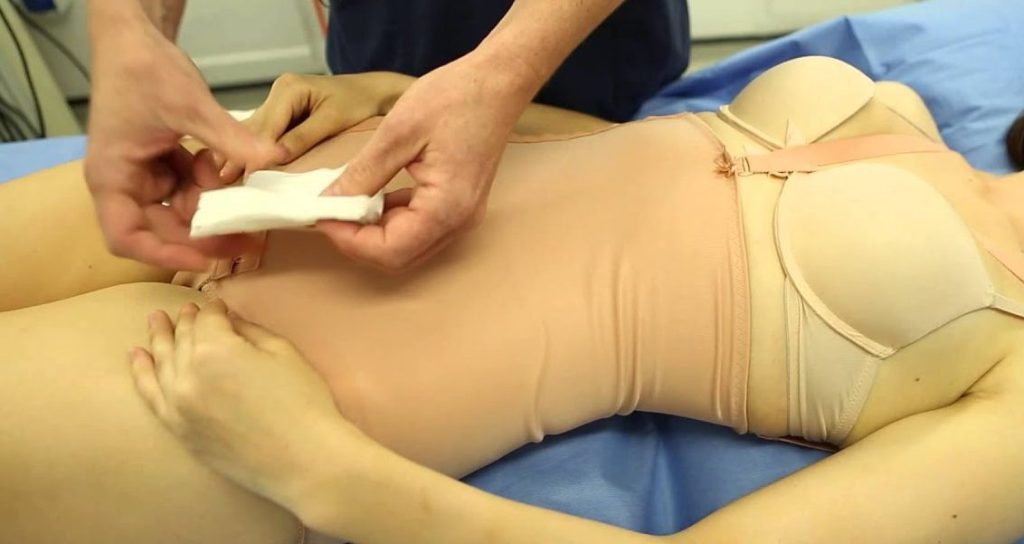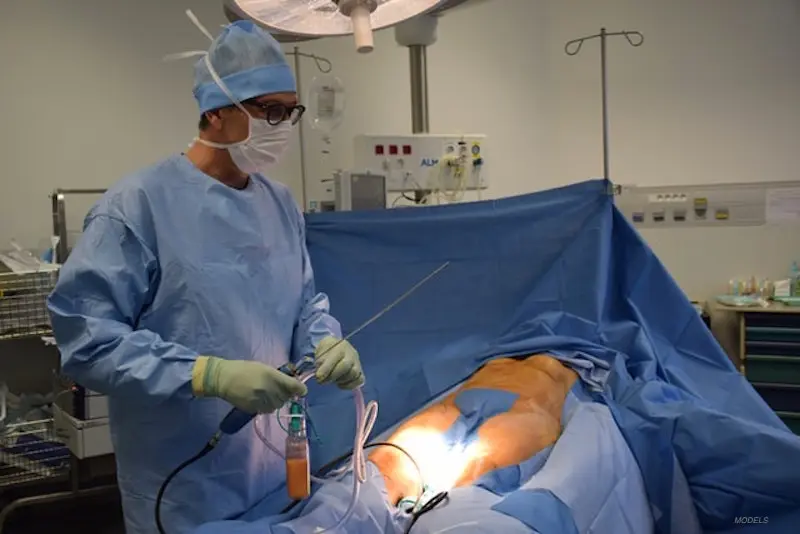Key Takeaways
-
Overcoming the fear of surgery Understanding your fears about liposuction
Understand that fear of complications, pain, and anesthesia are very typical, and overcoming the fear directly can relieve anxiety.
-
Fear of surgery can produce a real psychological burden, heightening levels of stress and impacting mental health. Regardless of the emotional response, making space to process these feelings is important to ensure a successful surgical experience.
-
Personal concerns vary, so self-reflection and open discussions about your fears can provide perspective and clarity, helping to make informed decisions.
-
Talk to professionals and educate yourself as much as you can before getting liposuction to help calm your fears. Education and expert advice are potent weapons in combating trepidation.
-
Establish a robust support network with your family, friends, and former patients. They will provide you both emotional support and logistical assistance during every step of your surgical journey.
-
Schedule time to practice relaxation techniques such as meditation and deep breathing exercises in order to soothe pre-surgery jitters. Manage your expectations so you can maintain motivation while healing.
When you’re thinking about getting liposuction, you feel both eager and nervous. Most patients will struggle with the fear of surgery, and that’s very natural. To address these concerns, alleviating the fear of surgery by putting the process into clear and achievable steps.
Understanding what happens during the procedure, knowing the benefits, and hearing from others who had positive experiences can make it less daunting. Engaging with members of the health care team who take time to be informative and offer reassurance will help build that confidence.
Focusing on the big picture with an emphasis on individual goals and the life changes that come with surgery can help turn fear into motivation. Taking this approach not only calms your fears, but it puts you in control of making educated decisions for your life and health.
Understanding Liposuction Fears
Coming to terms with the thought of undergoing surgery is sure to elicit a rollercoaster of feelings, and liposuction is no different. One big fear for many people is surgical complications, or the risk that comes along with anesthesia. As many as 8% of procedures require a second look, which compounds this fear.
Others are concerned about how they will deal with post-procedure pain and swelling. These symptoms can go on for up to three months. The idea of pain and scarring plays a huge role in the decision-making process when considering cosmetic procedures.
Common Fears of Surgery
One of the biggest fears preventing patients from undergoing surgery is their fear of complications that may occur. This is an understandable fear and it underscores the value of thorough education and preparation beforehand.
Then recovery comes with a whole new set of concerns, particularly with regard to pain and how long it will take to heal. Liposuction is not an instant gratification procedure – the full recovery process can take several months. One of the biggest fears about liposuction is what happens to your body image after the procedure—specifically, how it will impact your self-esteem.
Psychological Impact of Fear
Fear of surgery will only heighten pre-operative anxiety and stress, which can have lasting effects on mental health. This emotional toll can cause friction with common sense and make the whole process seem scarier than it really is.
Understanding these psychological responses is vital to improving the surgical experience. By acknowledging these fears upfront, patients can be more mentally prepared for their procedure.
Recognizing Personal Concerns
Each individual’s fear of surgery is different. It’s crucial to be honest about your anxieties and talk through them with someone you trust, and that includes your potential surgeon.
Packing a change of clothes, snacks, and something like an interesting book can help take the edge off pre-surgery nerves. An open dialogue can clear the air and calm fears, making the experience of going under the knife less stressful.
Strategies to Overcome Fear
Taking on the journey of getting liposuction surgery is an emotional process that often comes with common liposuction fears. You can tackle these cosmetic surgery fears head-on with the proper strategies and emerge confident. Below are some positive, practical ways you can help ease pre-op jitters.
1. Educate Yourself Thoroughly
Educate yourself to conquer your fear. Explore resources that explain liposuction procedures, including how anesthesia will be administered, to dispel any confusion.
Read up on their accreditation and type of procedures they’ve performed so you know you’re being well taken care of. Knowing what to expect in terms of recovery timelines and post-operative care can go a long way toward easing your worries.
2. Consult with Professionals
Meet with seasoned, congenial surgeons to address your fears. Inquire about the surgical procedure, anesthesia options, and safety measures.
Talking to the right healthcare professionals can help you learn how to alleviate your anxiety, which can make the whole experience a lot less intimidating.
3. Discuss with Past Patients
Meet people who have undergone liposuction. Hear their experiences and learn from their recovery and emotional transformation.
Authentic stories can shatter stereotypes and provide an honest look into what you’ll experience.
4. Build a Support System
Take advantage of friends and family, and don’t be afraid to let them help. Share your anxieties and allow your friends to help calm you.
Having a network of compassionate people will help you go a long way in your road to recovery.
5. Practice Relaxation Techniques
Include relaxation techniques such as meditation and deep breathing. These techniques work to relax anxious energy and provide powerful focus and clarity.
Try yoga or tai chi to increase relaxation going into surgery.
6. Set Realistic Expectations
Yes, healing takes time. Acknowledge that mood and body image changes are likely.
Deciding on realistic goals for what you want to achieve after surgery will help you stay focused.
7. Plan Post-Surgery Care
Provide guidance during the postoperative period and develop a postoperative plan of care. Build in pain management and recruit assistance in activities of daily living.
Set up check-ins so post-op recovery goes as planned.
Importance of Research and Consultation
Research is your best and only tool when it comes to deciding on liposuction. Begin by creating a short list of board-certified plastic surgeons. Specifically, target the providers that have the best patient reviews and the most impressive credentials. This guarantees you an exceptional level of care.

Ask to see their experience with liposuction and other cosmetic procedures. This gives you an idea of where they’re at in their development and what you should anticipate from them. Check the surgical centers’ record and level of safety. Because being in a dangerous situation can often compromise your peace of mind, ensuring that you are in a safe environment is crucial.
Researching Qualified Surgeons
Look for surgeons who have experience in the field, specifically, a proven record of experience with liposuction. Research their years of experience and request to view before-and-after photos. This provides an honest expectation of results and increases buy in.
Beyond meeting industry safety protocols, it’s important to make sure that there is a focus on exceeding those protocols by checking the surgical center’s track record. Learning more about this technology can help you feel confident about your decision.
Understanding Surgical Procedures
Learning about the steps involved in a liposuction procedure can help alleviate fears and concerns. Though the procedure is often outpatient, anesthesia and operative care support are critical to comfort during the procedure.
There are myriad other techniques, each with their own distinct advantages. For example, tumescent liposuction uses a local anesthetic while removing fat, which helps reduce recovery time. Understanding all of this information is key to making the right decision for your unique situation.
Evaluating Risks and Benefits
An honest, complete, and transparent evaluation of risks and benefits should inform a decision. Create a side by side chart comparing these elements. Be honest about personal health, as this can impact how successful the surgery is.
Recognizing that results won’t be immediate, with best results occurring after about six weeks, allows you to provide realistic expectations. This understanding alleviates anxiety and increases contentment, resulting in a 99% satisfaction level among cosmetic surgery patients.
Role of Support Systems
Having family and friends by your side during recovery can help you feel supported and give you the motivation to keep going. Their physical presence offers the reassurance of emotional support, smooths the path ahead, and deepens the emerging support system. Openly sharing feelings and concerns with them builds trust, creating a pathway to address any cosmetic surgery fears related to the surgical process.
Friends can be the most welcome of distractions, helpfully steering the focus from surgery to more exciting and positive pursuits. Their companionship can uplift your spirits and provide a sense of normalcy during a challenging time. This social interaction is vital for emotional well-being, allowing you to engage in activities that bring joy and laughter, especially when considering cosmetic surgery.
Professional counseling provides a second layer of support. Mental health providers help you learn how to cope with surgery anxiety, providing a comfortable environment to explore fears and emotional reactions. They assist with creating coping strategies that are specific to each individual’s needs, while focusing on the stress that comes along with surgery.
Connecting with a counselor helps you understand what you’re feeling and opens up a pathway to your recovery journey that is less rocky. This professional guidance can be instrumental in navigating the emotional landscape of recovery, ensuring you have the tools to manage your feelings effectively, especially for those who may have intense fears regarding their plastic surgery experience.
Support groups and communities, like those found on Inspire, help patients feel less alone and more understood. Joining groups focused on cosmetic surgery allows you to share experiences and advice, connecting with others who face similar challenges. Accessing online communities provides practical resources and emotional support, and conversations in these groups build knowledge and confidence.
Hearing other people’s journeys can be very illuminating, particularly when you’re dealing with your own body image challenges. These shared experiences can foster a sense of belonging and validation, making the recovery process feel more manageable and easing any discomfort associated with the surgery.
Education plays a crucial role in fostering a safer, more positive online space. Platforms such as Instagram and TikTok often promote largely unattainable beauty standards. In fact, a recent study published in Body Image found that regular exposure to images like these can decrease self-esteem, intensifying cosmetic surgery fears.
Though sometimes easier said than done, taking care of your mental health and participating in confidence-building pursuits can really help change the narrative. You will need to embrace who you are today as research indicates drastic declines in body dissatisfaction after surgery. This shift in perspective can be empowering, allowing you to appreciate your journey and the progress you make along the way.
Conclusion
Though liposuction may feel like an intimidating prospect, you have the power to confront those fears before taking the plunge. When you’re informed about the procedure and have honest conversations with your medical team, you feel more ready to take on your new journey. A strong support system goes a long way in relieving the fear of surgery, providing inspiration and empathy. Each journey is different and special, and it’s okay to take time to feel comfortable. Lean into these strategies, and welcome the journey toward your goals with focus and serenity.
Whether you’re the one getting liposuction or you’re helping someone else do it, these proactive steps go a long way. Want to learn how you can go further? Contact safe, reliable providers and begin your adventure—safely and informed—today. Your courage and your preparation will result in a positive experience.
Frequently Asked Questions
What are common fears associated with liposuction?
Patients often experience cosmetic surgery fears related to pain, anesthesia, and recovery time. Beyond the fear of the procedure itself, concerns about complications and the surgical results can exacerbate surgery anxiety. By understanding these fears, we can better address them and allay patients’ concerns.
How can I manage my anxiety about surgery?
Meditate and practice relaxation strategies, including deep breathing, to manage surgery anxiety. Discussing your cosmetic surgery fears with your surgeon ahead of time can be beneficial, as they can help allay concerns with positive messages and in-depth information.
Why is research important before undergoing liposuction?
Research provides crucial information about the cosmetic surgery procedure, possible risks, and what to expect during the healing process. This knowledge empowers you to make informed decisions and select an experienced surgeon, increasing your confidence.
How does consultation help in reducing fear?
Consultations allow plastic surgery patients to voice their cosmetic surgery fears and ask questions. Experienced surgeons can explain the surgical process and potential risks, building trust and reducing anxiety.
What role does a support system play in overcoming surgery fear?
A reliable support system can significantly alleviate surgery anxiety by providing emotional support and encouragement. Family and friends can accompany you to pre-op appointments and assist during recovery, helping to reduce cosmetic surgery fears.
How can I ensure I choose the right surgeon?
Select an experienced surgeon who is ASAPS board-certified and has performed liposuction thousands of times. Check their credentials, read reviews, and request before-and-after photos to alleviate common liposuction fears.
Are there non-surgical alternatives to liposuction?
The answer is yes—non-invasive options such as CoolSculpting and laser treatments are available. While these cosmetic procedures are less invasive and may produce less dramatic results, consulting with a board-certified plastic surgeon can help address any cosmetic surgery fears you may have.





